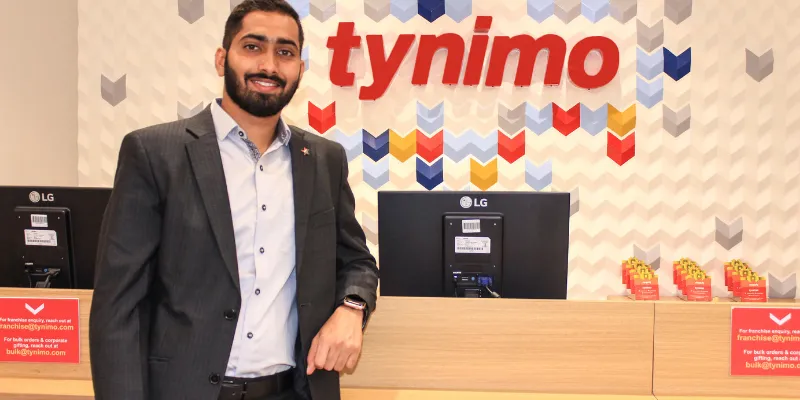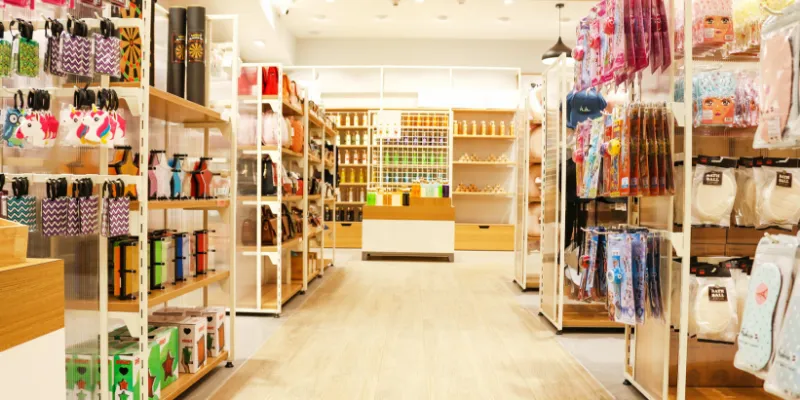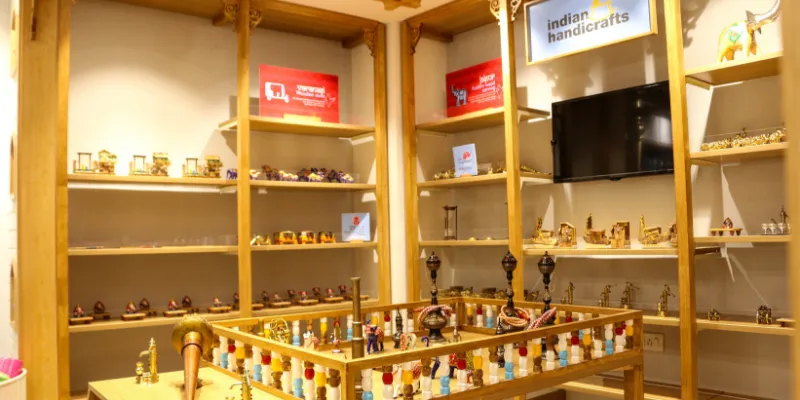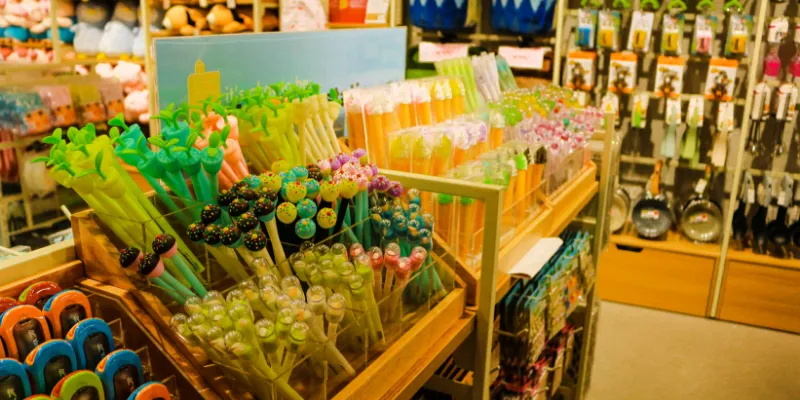Bootstrapped with Rs 10 Cr, how home-grown lifestyle brand Tynimo is giving its rivals a run for their money
If you love the Japanese-style lifestyle brands that are sprouting across the city, then you are bound to fall in love with Tynimo, a Bengaluru-based chain of variety stores. The brand already runs three stores and is soon eyeing to open up 50 more.
Pastel-coloured mugs adorned with mini flamingos, a yellow umbrella that looks straight out of the sitcom How I Met Your Mother sets, and a Bluetooth speaker designed like a classic television set; whether you love adorable little knick-knacks or whether you are a fan of old school decor, there’s something for everyone at Tynimo. The home-grown lifestyle brand that was launched as an answer to the growing popularity of Japanese-style lifestyle stores.

Vaibhav Jain
“Our main idea was to provide high quality, well-designed, daily lifestyle products at affordable prices,” Vaibhav Jain, who bootstrapped the venture with an initial investment of Rs 10 crore in January this year tells YS Weekender. The 24-year-old entrepreneur adds that the intention was to capitalise on the “concept of impulse buying, where people never plan to buy these products but end up buying it on the basis of what they see.”
And since what people see is critical to their buying behaviour, the packaging and pricing of various products at the Tynimo stores – categorised under 16 broad categories – are equally important. The brand, much like its Asian counterparts, the Japanese-Chinese Miniso, Korean Ximi Vogue, and Japanese Usupso, offers a quirky mix of everyday products and lifestyle and décor items. Only that Tynimo has taken special care of the pricing and the Indian sensibilities in a bid to outdo the competition.
A trip to South East Asia and a tryst with fast fashion
“Tiny store” and “more to shop” – a portmanteau of these two phrases, Tynimo strives to live up to its name, offering its target market with a variety of choices while ensuring that you do not burn a hole in your pocket.
Interestingly, the roots of this Bengaluru-based brand can be traced back to the fast fashion culture of the South East Asian countries. After all, it was during one of the many business (and leisure) trips to these exotic countries that Vaibhav had conceived the idea of Tynimo.
“The whole concept of fast fashion shopping is a popular concept in the South East Asian markets,” he says. “During my trips to these countries, I would always enjoy visiting these concept stores that offer unique, cute and offbeat products.” While these concept variety stores are quite popular outside (and even in India to a certain extent, thanks to the advent of the various Asian brands), there aren’t many Indian-origin companies catering to this segment. In fact, Tynimo is one of the firsts among the home-grown names.”
The brand, as of today, has three company-owned stores across prime locations in Bengaluru. They have even opened applications for franchise. As Vaibhav adds, “The average investment required is 60 lakhs for a 1000 sq ft store… it is a good opportunity for entrepreneurs and businessmen interested in starting a new business.”
Bridging the gap between luxury and affordability

Tynimo sells interesting lifestyle merchandise
The rise of the retail market in India - we saw it coming! Driven by the constant exposure to foreign brands, rising disposable income, and entry of new players, this industry, in fact, is estimated to grow to a whopping $1,200 billion by 2021, as per an IBEF report.
On one hand, there is the luxury market – pegged at $30 billion at the end of 2018 – and on the other hand, supported by increasing internet users, is the ecommerce segment that is known for providing a level playing field in terms of affordability and pricing. The sweet spot, for the new-age lifestyle retail players, in this case, lies somewhere in between.
Says Vaibhav, “We need more options but want it to be economical… Tynimo is filling this gap by providing high quality, beautifully designed branded products at affordable prices. We want people to upgrade their lifestyle through our brand.”
In doing so, however, the home-grown lifestyle brand has also found a delightful way to stand out from the competition – by promoting Indian handicrafts and boosting local artists and craftsmen.

The Indian handicrafts in the stores are designed by artists from across the country
“The Indian handicrafts collection is designed by artists across various regions including Jaipur, Varanasi and Saharanpur. Each artistry collection represents the culture of the specific region that they belong to, with raw materials used for these works being specific to those regions, like Ambabari and Kadam wood carvings which are native to Rajasthan,” explains the young entrepreneur.
As a result of this, not only does Tynimo get an edge over its Japanese, Korean, and Chinese rivals but also the artisans and craftsmen benefit from having an organised platform to market their products.
From three to 50 stores, the journey ahead
For Tynimo, which has been into operation for around six months, the growth has been nothing less than phenomenal. From three company-owned stores, all in Bengaluru, the retail brand is now eyeing a pan-India expansion with at least 50 operational units across the country by the end of financial year, 2020.

All the merchandise at the store is affordable
And if Vaibhav’s words are any indication, 40-50 percent of this expansion is proposed in the tier II and tier III cities, where there is a huge demand for economical offering like that of Tynimo’s.
In addition, the lifestyle brand will continue to focus on its USP, the Indian handicrafts section and its range of skin care products, that the company claims are, chemical-free, organic, and curated by a team of beauty and wellness experts. With products ranging between Rs 50 – Rs 3,500, currently Tynimo caters to the lifestyle segment across 16 categories including toys, home décor, bags and wallets, jewellery, hair ornaments, footwear and socks, travel accessories, personal care, food and beverages (to be introduced), Indian handicrafts, digital and watches, and sports and fitness.
As the brand grows, however, it is bound to get grander and even more diverse than its Japanese competition.
We certainly are not complaining. And, do we need cheaper and more quirky stuff? Yes, please.







